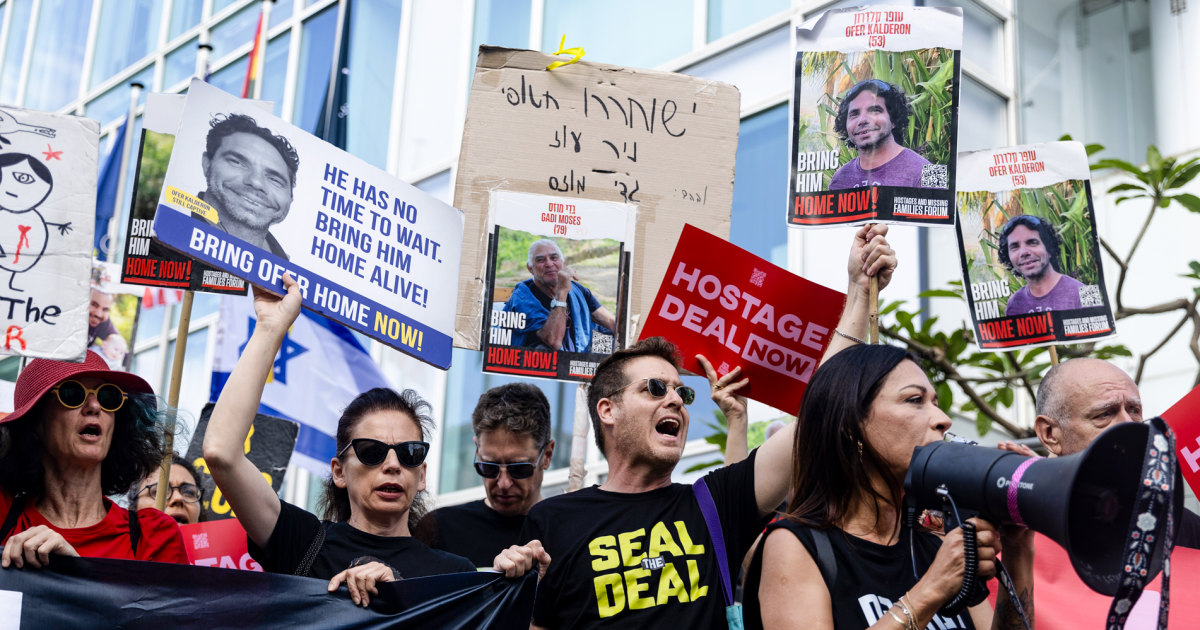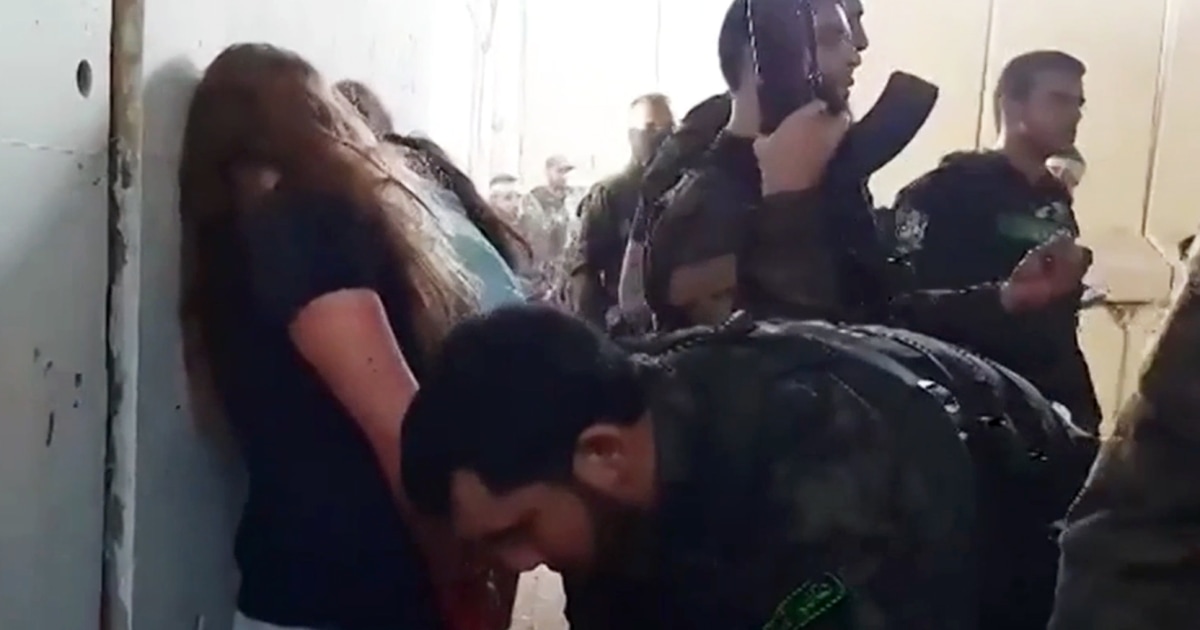TEL AVIV — Celebrations erupted across Israel on the news that four hostages held by Hamas, including 26-year-old Noa Argamani, had been rescued in a high–stakes military operation in central Gaza over the weekend.
But for the dozens of families whose relatives remain captive, the news brought mixed feelings: joy for those finally reunited with their loved ones after eight long months since they were taken in Hamas’ Oct. 7 attacks, but also despair that their own loved ones weren’t among those saved.
When she first heard about Saturday’s rescue, Aviva Siegel, who was held hostage by Hamas for weeks before being released as part of a landmark deal in November, said she was “so happy, I was jumping into the air.”
“Then, two minutes later, it took me to the sad part of the whole story — worried and worrying about all the hostages,” she told NBC News in an interview in Tel Aviv on Tuesday.
Among the more than 100 hostages who remain held by Hamas is her husband, Keith Siegel, one of several dual American and Israeli citizens remaining in Gaza after the couple were taken hostage from kibbutz Kfar Aza on Oct. 7.
Saturday’s rescue operation in the Nuseirat refugee camp saw Argamani and three others — Almog Meir Jan, 21; Andrey Kozlov, 27; and Shlomi Ziv, 40 — rescued by Israeli forces and police officers in a dramatic raid.
But it also left a trail of death and destruction in its wake, with more than 270 people killed, including children, according to health authorities in Gaza.
Hamas said hostages were also killed in the operation, but did not identify them or provide any evidence to support the claim — and the militant group said the Israeli military’s rescue operation “will have a negative impact on their conditions and lives,” referring to the remaining hostages.
“It frightens me terribly that they’re going to hurt them and we won’t even know anything,” Aviva Siegel said.
“We are worried,” Gil Dickmann, whose cousin Carmel Gat, 39, was kidnapped from her parents’ house in kibbutz Be’eri in the Oct. 7 attacks. “In my imagination, the most horrible things are happening to her in any given moment.”
Dickmann said he believed the success of the rescue operation shouldn’t undermine the need to secure the safe release of all still held captive in Gaza.
“The military operation was extraordinary,” he said in a Zoom interview from Tel Aviv. “But the ordinary way to get the hostages back is through a deal.”
Secretary of State Antony Blinken, in a meeting Tuesday with top Israeli officials and the families of those being held hostage, touted positive signs in efforts to negotiate a cease-fire in Gaza and the release of all hostage after the U.N. Security Council voted on Monday to back a proposed deal outlined by President Joe Biden.
Biden administration officials have separately discussed the possibility of negotiating a unilateral deal with Hamas to secure the release of Americans held hostage in Gaza if the current cease-fire talks fail, two senior U.S. officials and two former senior U.S. officials said.
Dickmann, a dual American-Israeli citizen himself, said that while his cousin is not a U.S. citizen and would not be included in such a unilateral deal, “I can’t blame the Americans for going to the American administration and asking them for help.”
“Governments should take care of their own citizens,” he said, urging the Israeli government to also focus getting the hostages released.
“Time is running out,” he warned, urging both governments to do what they can to push a deal forward. “Bring them as quickly as you can.”
Around 250 people were taken hostage in Hamas’ Oct. 7 attacks, in which some 1,200 people were killed, according to Israeli officials. More than 100 people are thought to remain held hostage in Gaza, with at least a quarter of them believed to be dead.















